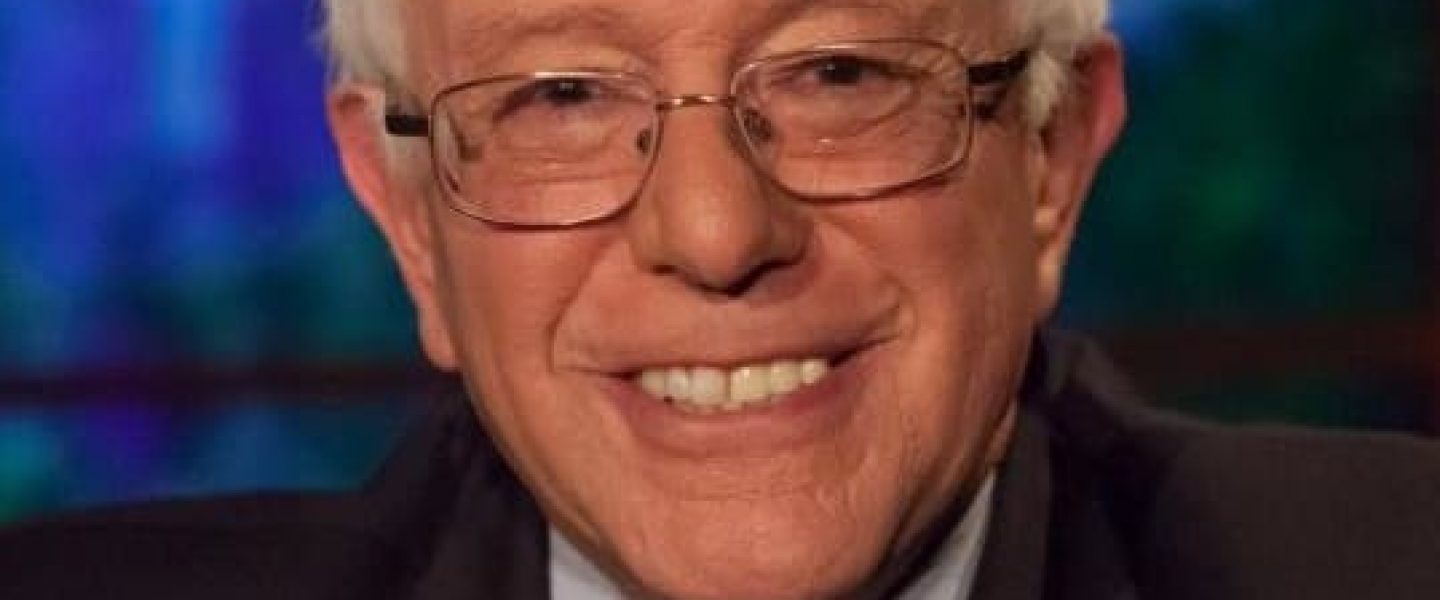 One day after announcing at George Mason University that he plans to introduce legislation to remove marijuana from the list of controlled substances, Senator Bernie Sanders took to the Senate floor to give an impassioned speech about how marijuana prohibition has failed.
One day after announcing at George Mason University that he plans to introduce legislation to remove marijuana from the list of controlled substances, Senator Bernie Sanders took to the Senate floor to give an impassioned speech about how marijuana prohibition has failed.
In a speech that lasted ten minutes, Sanders drew contrast between the prison populations in the U.S. and China. “Tragically, in the United States of America we now have 2.2 million people in jail. This is more people incarcerated than any other country on Earth—including China, which is a communist, authoritarian country four times our size,” Sanders said.
He touched on the fact that the United States currently spends $80 billion per year in taxpayer money locking people up, explaining that we should continue locking up violent people, but should not be allowing criminal records from non-violent marijuana crimes to destroy the lives of thousands of Americans.
“Let’s be clear: a criminal record could mean not only jail time, but much, much more. If a person has a criminal record, it will be much harder for that person later in life to get a job. Many employers simply will not hire somebody with a criminal record. If somebody has a criminal record, it may be impossible for them to obtain certain types of public benefits. It would be very, very hard to public housing. A criminal record stays with a person for his or her entire life—until the day he or she dies. A criminal record destroys lives.”
This is an important aspect that is often overlooked about the damage that marijuana prohibition can do. The punitive damages that come along with marijuana charges can also include getting your license suspended or losing access to college financial aid. As someone who smoked weed in college and didn’t come from a privileged background, this was always a fear of mine.
Another consequence of marijuana prohibition that Senator Sanders was sure to address is the glaring racial disparity when it comes to the enforcement of marijuana prohibition.
“…And let’s be clear that there is a racial component to this situation. Although about the same proportion of blacks and whites use marijuana, a black person is almost four times more likely to be arrested for marijuana possession than a white person. In other words, as we try to understand why our prison population today is disproportionately black and Latino, one of the reasons is that because of overpoliced black neighborhoods, African-Americans are much more likely to be arrested than whites. Here’s the simple truth: an upper middle class white kid in Scarsdale, NY, has a much, much lower chance of being arrested for smoking marijuana than a lower-income black kid in Chicago or Baltimore. Those are just the facts.”
With all of the discussion surrounding police brutality and the #BlackLivesMatter movement recently, it is key that marijuana prohibition and the war on drugs is addressed. At the core of the friction between minority communities and the police is this “War on Drugs” mentality that police officers have had ingrained in their brains. For a little more context, check out Michelle Alexander’s The New Jim Crow.
As a devoted marijuana activist, who started as an intern for NORML cataloging Congressional responses to constituents, the line I enjoyed the most, and one that I hope will reverberate through the ages was this one: “The time is long overdue for us to take marijuana off of the federal government’s list of outlawed drugs.”.
For anyone who understands how long marijuana prohibition has lasted, how deep the propaganda has been ingrained, and how many lives have been destroyed, today’s speech and the legislation to be introduced next week are of historic significance. This is the moment our movement has been waiting for over the course of decades. We better seize it and start to rally around this legislation, which will begin to unlock everything we’ve been working for.
Watch his speech (courtest of CSPAN)and read his prepared remarks below:
M. President, today I want to discuss a major crisis in our country that must be addressed.
Tragically, in the United States of America we now have 2.2 million people in jail. This is more people incarcerated than any other country on Earth—including China, which is a communist, authoritarian country four times our size. Further, at a time of large federal and state deficits, we are spending about $80 billion per year in federal, state, and local taxpayer money to lock people up.
Our criminal justice system is broken and we need major changes in that system.
M. President, there is no debate in this country that violent and dangerous people must be locked up and they must be kept in jail and away from society. On the other hand, I would also hope that there is no debate that nonviolent people, people who have been convicted of minor crimes, should not have their lives destroyed, while they do time in prison, and create an arrest record which will stay with them for their entire lives.
In 2014, there were 620,000 marijuana possession arrests. That’s one every minute. According to a report by the American Civil Liberties Union, there were more than 8 million marijuana arrests in the United States from 2001 to 2010, and almost nine in 10 were for possession.
Arrests for marijuana possession rose last year nationwide even as Colorado, Washington, Oregon, Alaska, and DC became the first states to legalize personal use of marijuana. And let’s be clear that there is a racial component to this situation. Although about the same proportion of blacks and whites use marijuana, a black person is almost four times more likely to be arrested for marijuana possession than a white person.
In other words, as we try to understand why our prison population today is disproportionately black and Latino, one of the reasons is that because of overpoliced black neighborhoods, African-Americans are much more likely to be arrested than whites. Here’s the simple truth: an upper middle class white kid in Scarsdale, NY, has a much, much lower chance of being arrested for smoking marijuana than a lower-income black kid in Chicago or Baltimore. Those are just the facts.
M. President, too many Americans in this country have seen their lives destroyed because they have criminal records as a result of marijuana use. That’s wrong. That has got to change.
Let’s be clear: a criminal record could mean not only jail time, but much, much more. If a person has a criminal record, it will be much harder for that person later in life to get a job. Many employers simply will not hire somebody with a criminal record. If somebody has a criminal record, it may be impossible for them to obtain certain types of public benefits. It would be very, very hard to public housing. A criminal record stays with a person for his or her entire life—until the day he or she dies. A criminal record destroys lives.
M. President, right now under the Controlled Substances Act, marijuana is listed as a Schedule I drug—meaning that it is considered to be a drug that is extremely dangerous. In fact, under the Act, marijuana is considered to be as dangerous as heroin. Now I know that there are conflicting opinions about the impact that marijuana has. I am aware of that. But nobody that I know of seriously believes that marijuana is as dangerous as heroin. That is absurd.
The time is long overdue for us to take marijuana off of the federal government’s list of outlawed drugs. In my view, at a time when Colorado, Washington, Oregon, Alaska, and the District of Columbia have already legalized the personal use of marijuana, every state in this country should have the right to regulate marijuana the same way that state and local laws now govern sales of alcohol and tobacco. Among other things, that means that recognized businesses in states that have legalized marijuana should be fully able to use the banking system without fear of federal prosecution.
In response to the initiatives that Colorado and other states have taken, the Obama administration has essentially allowed these states to go forward and to do what their people have chosen to do. That’s a good step forward, but not good enough, because a new administration with a different point of view could simply go forward and prosecute these marijuana businesses despite what the people in these given states have chosen to do.
What I am saying today is not that the federal government should legalize marijuana throughout the country. This is a decision for the states. And I would hope that many of my colleagues, especially those who express support for states’ rights and our federalist system of government; those who decry the power of the Big Bad federal government in undermining local initiatives, would support my very simple and straightforward legislation, which will be introduced next week. All that this legislation says is that if a state chooses to legalize marijuana, that state should be able to go forward without legal impediments from the federal government.








